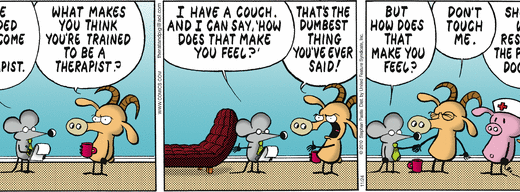Someone sent me a response to my previous post:
I don’t agree with it, and think there is some heavy gaslighting or projection, but overall it is a pretty good response! Love to hear your thoughts.
Dear Therapist,
This week, I sat with your son. He’s been struggling for a while — trying to piece together an identity between two worlds. Yours, built on the news and what you hear from the outside world. And mine, built on tradition and yiras shamayim.
He told me about your work — about how you help people for hundreds of dollars for only 45 minutes a week. He asked me how come you don't do chessed and charge less?
He also told me that you expect him to care about tefilah but you talk in shul the whole time, and how you are disappointed when he doesn't do well in yeshiva but he's never seen you care about learning yourself. Also how you work many hours and also play games on your smartphone and scroll the news and don't pay so much attention to him.
He told me you try so hard to understand him, but that sometimes your words feel like a diagnosis, not a direction and without mentoring or leading by example. You expect the Rabbeim to ''make him frum'' while you are complacent in your own spiritual growth. You shallowly say he has ADHD and the yeshiva system is broken, and you disparage it and the Rav's talk by every shabbos day meal -- but then you want your son to also be matzliach in yeshiva.
And so he came to me.
Not because I’m perfect. Not because I have all the answers. But because he wanted to believe in something again -- in ruchneeyus. He wanted a rebbi who didn’t analyze him or blame the system— but accepted him and led by example. Who didn’t ask “why are yeshivas like this,” but simply said, “I’m glad you’re here.”
Dear Therapist, maybe start learning more Torah and respecting talmidei chachamim and your view will change. You will grow instead of running to pesach hotels and competing with the Jonses' new car and lace shaitel and over-the-top weddings.
Your son needs something else. Not all your critisism of the system, but emunah and shimush chachamim. Not blaming the world as the head of a fox, but a place to stand as tail of the lion.
Sometimes he needs someone who doesn’t just hold his story and explain how the system is to blame, but gives him a story worth living.
So he comes to the Beis Midrash, where he can sweat and struggle and argue over a Tosfos — and feel like a man among men. Sometimes he cries. And I listen. Sometimes he yells. And I let him. And sometimes, he just needs silence — not the clinical kind, but the kind filled with kedusha.
Dear Therapist, your son is a beautiful soul. You planted seeds in him but you water him with salty water. I’m just helping him grow them in a pure garden. I hope one day we’ll sit together, as partners — not as opposing systems, but as two people who refused to give up on a child.
With deep respect,
Rosh Yeshiva






Most therapists don’t make enough to go on Pesach programs. They do the work they do for Klal Yisrael, and charge enough to earn a living. And many do learn Torah. This response is indicative of the problem addressed in the first post.
Stupid response.